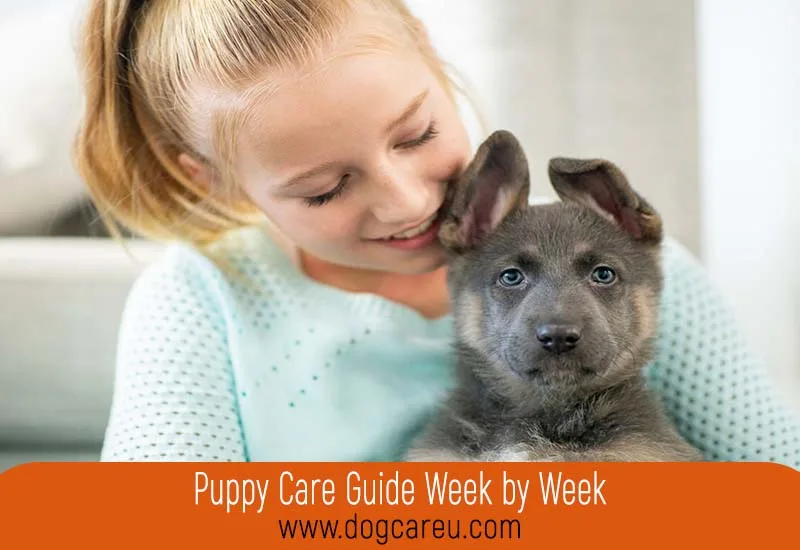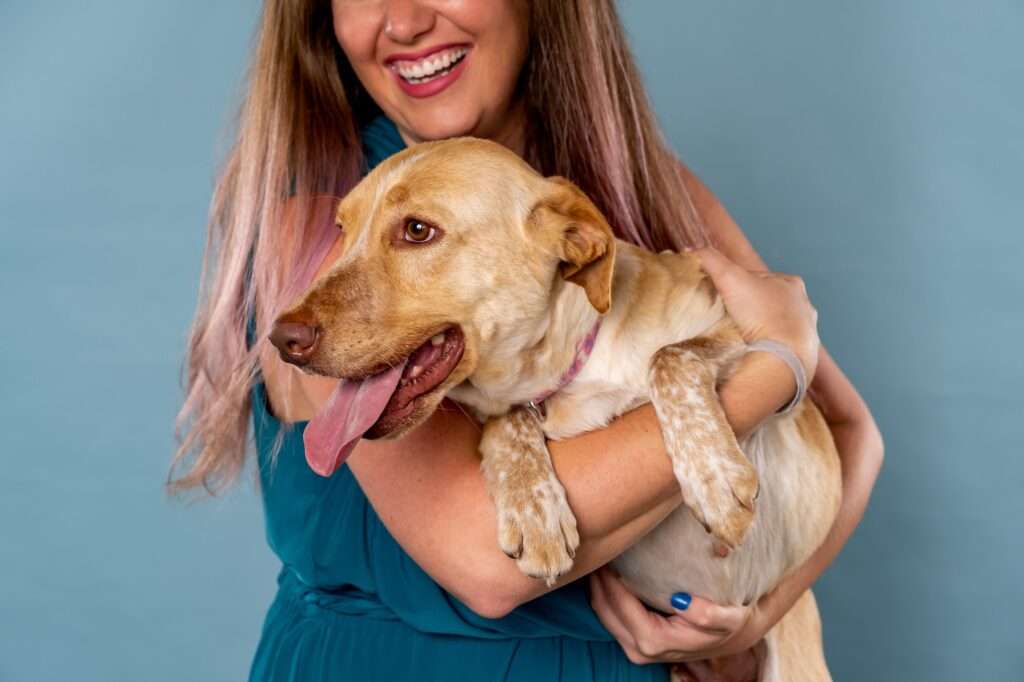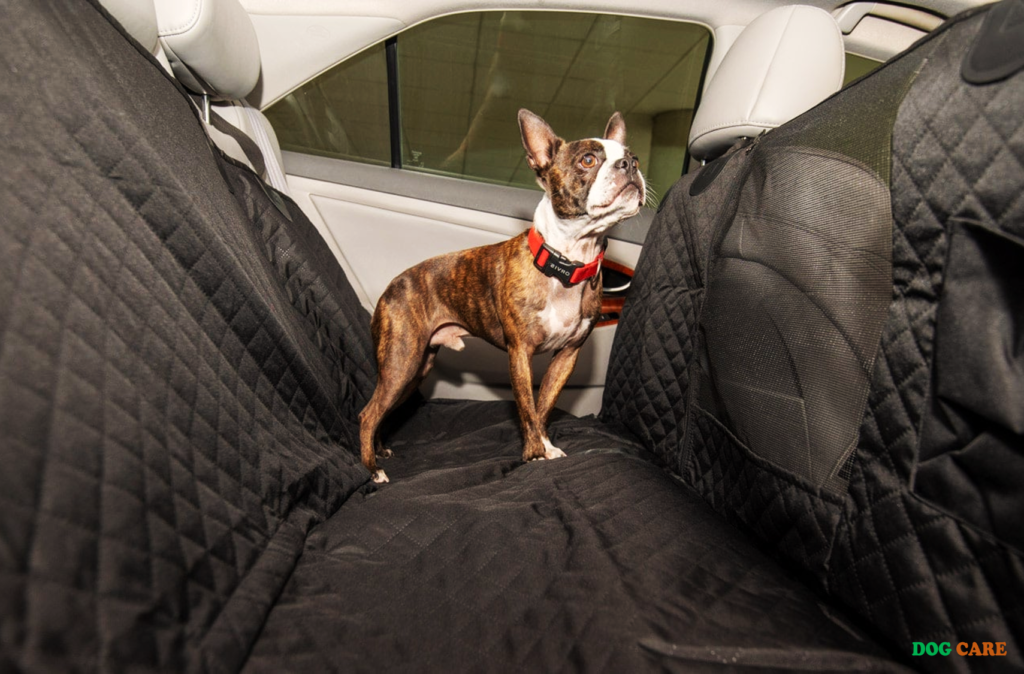Puppy Care Guide Week by Week: A puppy care guide week by week provides essential information and tips for taking care of your puppy as it grows. Having a new puppy at home can be an exciting and rewarding experience.
However, it also requires dedication and commitment to provide the best care possible. A puppy care guide week by week is an invaluable resource that can help you navigate through the different stages of your puppy’s development, ensuring that you meet all their needs and set them up for a healthy and happy life.
From providing nutrition and adequate exercise to socialization and basic training, each week brings new milestones and challenges. By following a comprehensive care guide, you can ensure that you are providing your puppy with the best care and giving them the best start in life. So, let’s dive into the journey of puppy care, step by step.

Week 1: Preparing For Your New Puppy
Welcome to Week 1 of our Puppy Care Guide! Bringing home a new furry friend is an exciting time, and proper preparation is key to ensuring a smooth transition for both you and your puppy. In this article, we’ll outline the essential steps you need to take during Week 1 to set the stage for a happy and healthy life with your new companion.
Gathering Essential Supplies
No matter the size or breed of your new puppy, having the right supplies on hand is crucial for their well-being. Before your puppy arrives, make sure you have the following items:
- A comfortable bed or crate for your puppy to sleep in.
- Food and water bowls that are appropriate for their size.
- A variety of toys to keep them entertained and encourage mental stimulation.
- Puppy food that is specifically formulated for their age and breed.
- Collar and leash for walks and outings.
- Puppy pads or newspapers for potty training.
- Grooming supplies such as brushes, nail clippers, and shampoo.
Having these supplies ready beforehand will not only make your puppy feel more comfortable, but it also ensure that you’re fully prepared to meet their needs from day one.
Puppy-proofing Your Home
Puppies are curious creatures and can easily get themselves into trouble if your home isn’t properly puppy-proofed. Here are some steps to take to make your living space safe for your new addition:
- Secure any toxic substances such as cleaning products or chemicals in cabinets out of their reach.
- Keep electrical cords tucked away or covered with cord protectors.
- Remove any small objects or items that could be a choking hazard.
- Block off areas of the house that you don’t want your puppy to have access to.
- Check for any plants that may be toxic to dogs and remove them from your home or place them in inaccessible areas.
Taking these precautions will not only keep your puppy safe but also give you peace of mind knowing that they can explore their new environment without getting into harm’s way.
Creating A Safe And Comfortable Space For Your Puppy
Just like humans, puppies need a dedicated space where they can feel safe and secure. Here’s how you can create such a space for your new furry friend:
- Set up a designated area in your home that will serve as their “puppy zone.”
- Place their bed or crate in this area, along with their food and water bowls and a few toys.
- Make sure the space is free of any potential hazards or obstacles.
- Consider using baby gates or barriers to restrict access to other parts of the house.
- Provide your puppy with plenty of love and attention in their designated space to help them feel secure.
Creating a safe and comfortable space for your puppy helps them establish a routine and gives them a sense of belonging in their new home. It also helps with potty training and allows them to have a space to retreat to when they need some downtime.
Week 2: Introducing Your Puppy To Their New Home
Bringing a new puppy home is an exciting time for any pet owner. Week 2 is a crucial period for your puppy’s acclimation to their new surroundings. This week focuses on key aspects such as introducing them to their designated potty area, establishing a feeding and exercise routine, and socializing them with family members and other pets. Let’s dive into these essential steps!
Introducing Your Puppy To Their Designated Potty Area
Your puppy needs to learn where they are allowed to relieve themselves. Creating a designated potty area will help them understand the proper place to go. Here’s how you can successfully introduce them to their potty area:
- Choose a specific spot in your yard or designate an indoor area with pee pads if you live in an apartment.
- Take your puppy to the designated area every few hours, especially after meals, naps, and playtime.
- Use consistent verbal cues such as “go potty” or “do your business” to reinforce what you want them to do.
- Praise and reward your puppy with treats or verbal praise whenever they successfully go potty in the designated area.
Remember, consistency is key! With patient and consistent reinforcement, your puppy will quickly understand where they should relieve themselves.
Establishing A Feeding And Exercise Routine
Establishing a consistent feeding and exercise routine is essential for your puppy’s growth and overall well-being. To create a routine that works for both you and your furry friend:
- Choose a suitable feeding schedule based on your puppy’s age, breed, and individual needs.
- Divide their daily food into multiple small meals to prevent overeating or digestive issues.
- Stick to the same location for their meals to associate that place with feeding time.
- After each meal, wait for 10-15 minutes, and take your puppy to their designated potty area.
- Provide regular exercise sessions suitable for their age, breed, and energy level.
A structured routine will help your puppy feel secure and comfortable in their new home. It will also prevent common issues such as obesity or accidents in the house.
Socializing Your Puppy With Family Members And Other Pets
Proper socialization is crucial for your puppy’s development and future interactions with others. Here’s how you can ensure their proper socialization:
- Introduce your puppy gradually to family members, one person at a time.
- Encourage calm and positive interactions, avoiding overwhelming or frightening experiences.
- Supervise your puppy’s interactions with other pets in a controlled and safe environment.
- Expose your puppy to different environments, sounds, and stimuli to build their confidence.
- Enroll your puppy in puppy socialization classes or seek professional guidance if necessary.
By socializing your puppy early, you’ll help them grow into a well-adjusted and friendly adult dog, ready to face the world with confidence!
Week 3: Basic Training And Early Socialization
During Week 3 of the Puppy Care Guide, focus on basic training and socialization to ensure healthy development for your furry friend. It is crucial to start this process early to help them adapt to new environments and become well-rounded companions.
Teaching Your Puppy Their Name And Basic Commands
One of the most important aspects of basic training for your puppy in week 3 is teaching them their name and basic commands. Use their name often and consistently, so they can start associating it with their identity. Begin by saying their name in a cheerful tone and rewarding them with treats or praise when they respond to it. Keep the training sessions short but frequent to maintain their focus. To teach basic commands like “sit” and “stay,” use positive reinforcement techniques.
Hold a treat close to their nose and slowly move it upwards while saying the command. When their bottom touches the ground, reward them immediately with a treat and praise. Repeat this process multiple times in short bursts throughout the day to strengthen their understanding. Remember, consistency and repetition are key for successful training.
Positive Reinforcement Techniques For Behavior Shaping
Positive reinforcement is crucial when it comes to shaping your puppy’s behavior. This technique focuses on rewarding desirable behaviors to encourage their repetition. Always reward your puppy’s good behavior with treats, verbal praise, and plenty of love and attention. This helps them associate positive feelings with the desired actions. Avoid using punishment or negative reinforcement methods, as this can lead to fear, anxiety, and even aggression in puppies.
Instead, redirect their attention to alternative behaviors or use distractions when they display unwanted behaviors. For example, if they start to chew on furniture, give them a safe chew toy to redirect their focus. Over time, they will learn which behaviors result in rewards and adjust their actions accordingly.
Gradual Exposure To Various Environments And Stimuli
Early socialization is crucial for puppies to grow into well-rounded and confident dogs. In week 3, it’s important to gradually expose your puppy to various environments and stimuli to help them become more adaptable and less fearful. Introduce them to different sounds, smells, objects, and individuals to broaden their experiences. Begin with low-stress environments, such as your home or backyard, and gradually progress to more stimulating places like parks or pet-friendly stores.
Ensure each introduction is a positive experience by rewarding your puppy for calm behavior and providing plenty of praise and treats. This will help them associate new environments and stimuli with positive outcomes, reducing the likelihood of fear or anxiety in the future. By following these tips during week 3 of your puppy’s development, you can lay the foundation for their lifelong training and socialization. Remember, a patient and consistent approach with positive reinforcement will yield the best results. Enjoy this precious time with your furry friend and watch them grow into a well-behaved and confident companion.

Week 4: Health And Grooming Care
In Week 4 of your puppy’s life, it’s crucial to prioritize their health and grooming routine. This week is all about ensuring your furry friend stays in the best possible shape, from their first veterinary visit and vaccinations to maintaining a proper grooming routine and monitoring for signs of illness or discomfort.
Scheduling The First Veterinary Visit And Vaccinations
One of the most important steps you can take to protect your puppy’s health is scheduling their first veterinary visit and vaccinations. This early vet visit is vital for preventative care and to detect any potential health issues early on. Vaccinations are essential to safeguard your puppy against common diseases and illnesses, such as distemper, parvovirus, and adenovirus.
During this visit, the veterinarian will conduct a thorough examination, checking your puppy’s overall health, weight, and heart rate. They will administer necessary vaccinations and discuss future vaccination schedules to keep your puppy protected.
Maintaining A Proper Grooming Routine
Grooming is not just about making your puppy look good; it’s also essential for their overall well-being. A proper grooming routine helps maintain your puppy’s cleanliness, prevents matting, and ensures their skin and coat are in optimal condition.
Regular brushing is key to keeping your puppy’s coat healthy. It removes loose fur, prevents tangles, and stimulates blood flow to the skin. Be sure to use a brush suitable for your puppy’s breed or coat type.
In addition to brushing, regular bathing is necessary to keep your puppy clean and odor-free. Use a mild shampoo specifically formulated for puppies to avoid any skin irritation.
Don’t forget about dental care! Introduce your puppy to tooth brushing early on to promote good oral hygiene and prevent dental issues in the future. Use a toothbrush and toothpaste designed for dogs to keep their teeth clean and healthy.
Checking For Signs Of Illness Or Discomfort
Being proactive in monitoring your puppy’s health is vital. Regularly check for any signs of illness or discomfort to catch potential problems before they worsen. Here are some signs to watch out for:
- Lethargy
- Loss of appetite
- Vomiting or diarrhea
- Coughing or sneezing
- Excessive thirst or urination
- Red or swollen eyes
- Abnormal discharge from the nose, ears, or eyes
- Limping or difficulty walking
If you notice any of these signs or any other unusual behaviors, consult your veterinarian promptly. Early intervention can make a significant difference in your puppy’s health and well-being.
Week 5: Building A Lifelong Bond
During Week 5 of your puppy’s development, you will continue to focus on building a lifelong bond with your furry friend. This is an important stage in your puppy’s growth, as they are now becoming more aware of their surroundings and building their social skills. By devoting time and effort to training, socialization, and establishing a long-term care plan, you can ensure that your puppy grows into a well-adjusted and happy adult dog.
Continuing Training And Socialization Efforts
At this stage, your puppy will benefit from ongoing training and socialization to reinforce good behavior and proper interactions with people and other animals. Continue teaching basic commands such as ‘sit’, ‘stay’, and ‘come’. Use positive reinforcement techniques and reward your puppy with treats or praise when they exhibit the desired behaviors.
Additionally, it is crucial to expose your puppy to different environments, sounds, and stimuli. Take them for walks in various locations, introduce them to friendly dogs and people, and allow them to navigate unfamiliar situations. This exposure will help your puppy become confident and adaptable in different circumstances.
Introducing New Experiences And Challenges
Diversifying your puppy’s experiences is important to promote mental and emotional growth. Encourage curiosity by introducing new toys, puzzles, and challenges that stimulate their mind. Consider introducing different surfaces for them to walk on, such as grass, carpet, or tiles, to help them develop confidence in various terrains.
You can also start incorporating short obedience training sessions into your daily routine. Teach your puppy to wait patiently for their meals, to properly walk on a leash, and to be comfortable with handling, such as brushing or nail trimming. These activities will strengthen the bond between you and your puppy while instilling good manners and obedience.
Establishing A Long-term Care Plan For Your Puppy
Looking into the future, it is essential to establish a long-term care plan for your puppy’s overall well-being. This plan should cover their nutrition, exercise routine, grooming needs, regular vet check-ups, and preventive health measures such as vaccinations and parasite control.
| Nutrition | Exercise | Grooming | Veterinary Care |
|---|---|---|---|
|
|
|
|
By establishing a comprehensive care plan, you can ensure that your puppy receives the necessary support to grow into a healthy and happy adult dog. Regular monitoring, timely veterinary visits, and consistent attention to their physical and emotional well-being will contribute to a strong and lasting bond with your furry companion.
Frequently Asked Questions For Puppy Care Guide Week By Week
How Do I Care For A Newborn Puppy?
Caring for a newborn puppy involves providing warmth, feeding every few hours, and gentle handling for toileting.
What Should I Feed My Puppy During The First Week?
During the first week, feed your puppy with a milk replacement formula specifically designed for newborn puppies.
How Often Should I Feed My Puppy In The Second Week?
Feed your puppy every four hours during the second week, gradually introducing a mixture of milk replacement formula and puppy food.
When Should I Start Socializing My Puppy?
Start socializing your puppy around three weeks old, exposing them to different people, animals, and environments gradually.
How Can I Potty Train My Puppy?
To potty train your puppy, establish a consistent routine, take them outside after meals or naps, and provide positive reinforcement when they eliminate in the right place.
Conclusion
To sum up, caring for a puppy is a rewarding yet challenging journey. From the first week to the eighth, each stage requires specific attention and care. By following this week-by-week guide, you can ensure your new furry friend gets all the care and love they need to thrive.
Remember, patience, consistency, and plenty of affection are key to raising a healthy and happy puppy. Embark on this adventure, and witness the joy and companionship that a well-cared-for puppy brings to your life.


